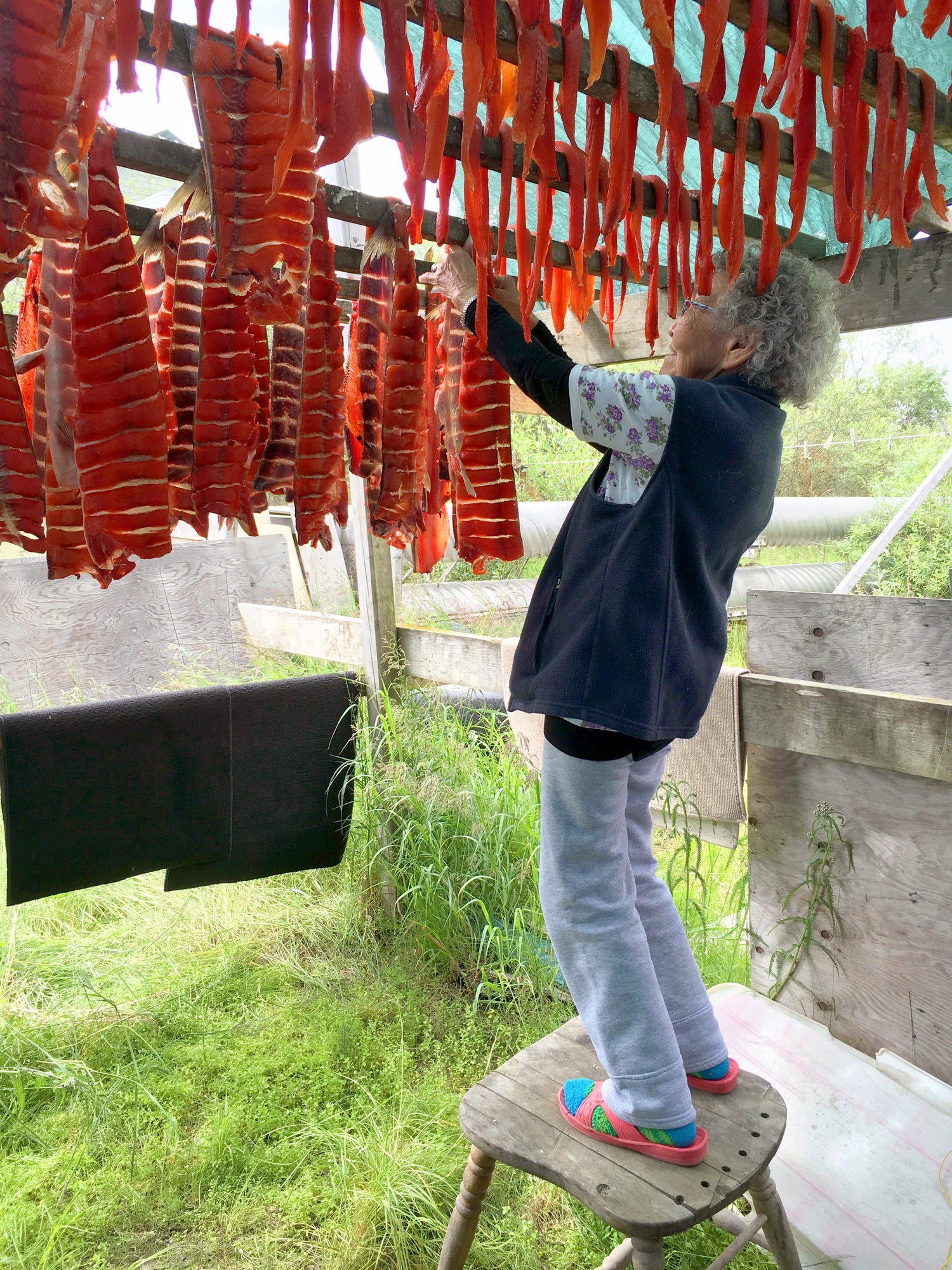Earthjustice stands with western Alaska tribes and families after severe storms devastated entire communities, displacing more than 1,000 residents just before winter. Learn more and how you can help.
Court Hearing: Southwest Alaska Tribes and Cook Inletkeeper Challenge Donlin Gold Mine’s State Permits
Plaintiffs argue key state permits authorizing the world’s largest gold mine are illegal
Contact
Four tribes in the Yukon Kuskokwim Delta region of Southwest Alaska and Cook Inletkeeper, an Alaska environmental group, are challenging key state permits for the Donlin Gold Mine in two separate court cases.
The Alaska Supreme Court in Anchorage has scheduled back-to-back court hearings for the cases on Tuesday, November 12. The public, including reporters, may listen to the oral arguments at KTOO Gavel Alaska starting at 1:30 pm Alaska Standard Time on Tuesday, Nov. 12, or attend in person at the Boney Courthouse, 303 K Street, 5th Floor, Anchorage, 99501.
One of the two state lawsuits challenges the legality of a state right-of-way permit issued by the Alaska Department of Natural Resources (DNR) to Donlin Gold LLC for a 316-mile- long buried gas pipeline that would cross more than 200 miles of state land and is needed to power the mine.
In issuing that pipeline permit, plaintiffs argue that DNR looked only at the pipeline as a separate project and ignored the overall effects of the mine, in violation of the state constitution. That case was filed by four Alaska Native tribal governments, including Orutsararmiut Native Council, Chevak Native Village, Native Village of Eek, the Native Village of Kwigillingok, and the nonprofit environmental organization, Cook Inletkeeper.
Cook Inletkeeper recently published a blog about the Donlin pipeline detailing how the mine’s consumption of Cook Inlet gas could increase Southcentral Alaska utility bills. It’s based on a report authored by long-time Alaska energy sector consultant Mark Foster, who provided this statement: “Local residents, small businesses, local elected officials need to remain vigilant in their efforts to require large industrial customers to demonstrate that they will pay their fair share of the costs of local energy resource development and local electric utility costs. Otherwise, the locals will get fleeced into paying the energy bills that should be paid by outside investors.”
The second lawsuit, brought by two of those same tribes — Orutsararmiut Native Council and the Native Village of Eek — challenges 12 state water rights permits issued by DNR. The permits would allow Donlin to use millions of gallons of water for building and operating the mine project, dewatering fish habitat and potentially contaminating waters surrounding the project in the process.
Similar to the pipeline case, the tribes argue DNR should have considered the cumulative impacts of the water rights permits in context of the larger mine project, not just as isolated water permits. In addition, the tribes argue that DNR failed to consider the creation of a pit lake which will fill with toxic water when the mine closes and will have to be pumped and treated in perpetuity to prevent contaminated water from spilling into surrounding salmon streams.
Each oral argument has a unique link.
- Right-of-Way Oral Argument (beginning at 1:30 p.m.)
- Water Rights Oral Argument (beginning around 2:45 p.m.)
These will also be recorded and available after the hearing on the Gavel Alaska website.
Following are statements from our clients regarding these oral arguments:
“It’s important the Alaska State Supreme Court hears our concerns,” said Walter Jim, Tribal Council President, Orutsararmiut Native Council. “In its permitting process, the state looked at parts of the mine separately, like the pipeline or certain water rights, but it did not consider how the whole project would affect our health, our waters, our lands and our ways of life. This project could have serious impacts on our tribe and other Kuskokwim River tribes, and it doesn’t make sense to look at each part separately as if it’s not part of the larger mine.”
“Not all tribes who oppose the Donlin Gold mine are involved in these lawsuits, but most tribes in our region oppose the mine, so we’re fighting for the broader Yukon-Kuskokwim when we go to court,” Gavin Phillip, Tribal Administrator, Native Village of Kwigillingok: “Some people think it’s too late to stop the Donlin Gold Mine, but it’s not too late. Six tribes, including the Native Village of Kwigillingok, won our challenge in federal court recently, and we hope to prevail in state court too to have these state permits vacated. The mine developers are telling people this will benefit the region economically, but the mine doesn’t reflect our priorities, which are hunting, fishing and stewarding these lands and waters as we always have.”
“Most Tribes in our region do not feel comfortable with the Donlin Mine moving forward. That’s why we’re in court,” said Gabriel Nanok, Second Chief of Chevak Native Village. “We’re asking the court to vacate the state right of way permit for the pipeline to power the mine because they haven’t examined the impacts to our region adequately. We will be living with the mine’s health and environmental risks. The state must take a harder look at this project to ensure it won’t harm our people, or our lands and waters that support the fish and wildlife we depend on.”

Additional Resources
About Earthjustice
Earthjustice is the premier nonprofit environmental law organization. We wield the power of law and the strength of partnership to protect people's health, to preserve magnificent places and wildlife, to advance clean energy, and to combat climate change. We are here because the earth needs a good lawyer.